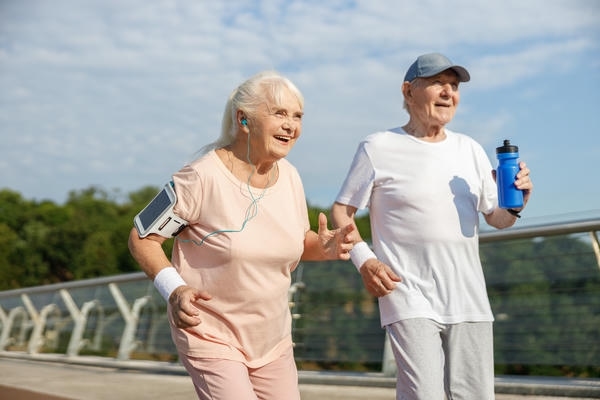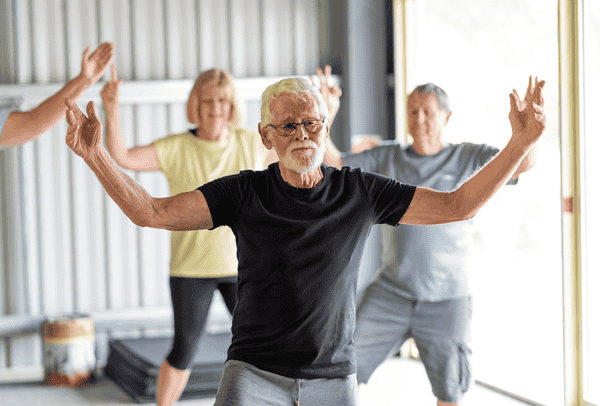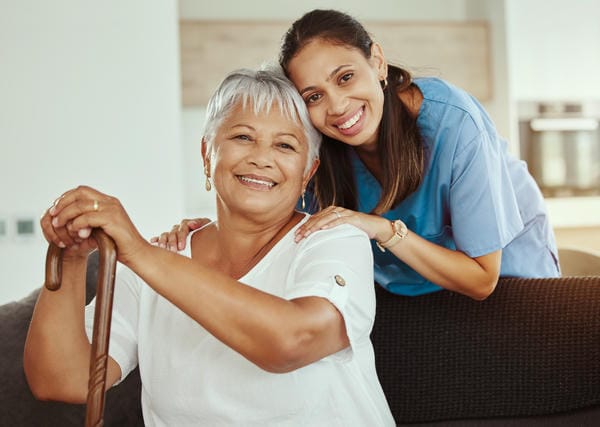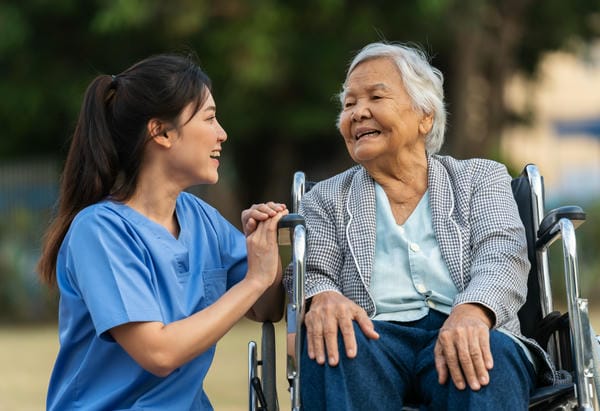As the golden rays of summer begin to paint our world in vibrant hues, they bring with them not just the promise of warmth and leisure, but also a set of unique challenges for our beloved elders. The summer season, with its soaring temperatures and humidity, can be a double-edged sword for older adults. While it offers opportunities for outdoor enjoyment and social gatherings, it also introduces health risks that require our careful attention and proactive care.
Imagine for a moment, Sarah, a sprightly 78-year-old who has always loved tending to her garden. As the summer heat intensifies, her usual hour-long gardening sessions become increasingly taxing. One particularly sweltering afternoon, Sarah’s daughter visits to find her mother looking flushed and disoriented, having spent too long in the sun without proper hydration. This scenario, all too common as temperatures rise, underscores the critical need for awareness and preventive measures to ensure our elderly loved ones can safely enjoy the summer months.
In this comprehensive guide, we’ll explore the unique health challenges faced by the elderly during summer, delve into effective preventive strategies, and provide practical tips for caregivers and family members. Our goal is to equip you with the knowledge and tools necessary to help older adults navigate the summer season safely, allowing them to bask in its joys while steering clear of its potential pitfalls.
Understanding the Risks: Why Summer Can Be Challenging for the Elderly
The human body is a marvel of adaptation, but as we age, its ability to respond to environmental stresses diminishes. For the elderly, this natural process of aging intersects with the intense conditions of summer in ways that can significantly impact their health and well-being.
The Body’s Changing Thermostat
Dr. Elena Rodriguez, a geriatrician specializing in environmental health impacts on seniors, explains, “As we age, our body’s internal thermostat becomes less efficient. The mechanisms that help us cool down – like sweating and increased blood flow to the skin – don’t work as well as they once did. This makes older adults more susceptible to overheating, even in conditions that younger people might find comfortable.”
This physiological change is at the root of many summer health risks for the elderly. It’s not just a matter of comfort; it’s a crucial factor in preventing heat-related illnesses that can have severe consequences.
Chronic Conditions and Medications: A Complicating Factor
Many older adults live with chronic health conditions that can be exacerbated by heat. Conditions such as heart disease, diabetes, and respiratory issues can all be affected by high temperatures. Moreover, the medications used to manage these conditions can sometimes interfere with the body’s natural cooling processes.
Consider the case of Robert, a 72-year-old with hypertension. His blood pressure medication, while essential for managing his condition, also increases his sensitivity to heat. On a particularly hot day, Robert’s usual walk in the park became a dangerous endeavor as his body struggled to regulate its temperature, leading to a frightening episode of heat exhaustion.
Dr. Rodriguez advises, “It’s crucial for older adults and their caregivers to be aware of how medications might affect their response to heat. Some diuretics, for instance, can accelerate fluid loss, increasing the risk of dehydration. Always consult with a healthcare provider about potential side effects and how to manage them during hot weather.”
The Silent Threat of Dehydration
Dehydration poses a significant risk to older adults during summer months, often sneaking up without obvious warning signs. As we age, our sense of thirst diminishes, meaning older adults might not feel thirsty even when their bodies desperately need fluids. Additionally, the fear of incontinence or mobility issues might lead some seniors to intentionally limit their fluid intake.
Martha, an 85-year-old living in a senior community, often avoided drinking water in the afternoons to prevent nighttime trips to the bathroom. During a heatwave, this habit led to severe dehydration, resulting in a hospital visit that could have been easily prevented with proper hydration strategies.
Preventive Measures: Creating a Shield Against Summer Health Risks
Armed with an understanding of the unique challenges faced by the elderly during summer, we can now explore comprehensive strategies to mitigate these risks. The key lies in a multifaceted approach that addresses the core issues of temperature regulation, hydration, and sun protection.
Staying Cool: More Than Just Comfort
Maintaining a cool environment is crucial for the elderly during summer months. It’s not just about comfort; it’s a vital health measure. Here are some strategies to help seniors stay cool:
- Optimize the Living Space: Ensure that living areas are equipped with effective cooling systems. Air conditioning is ideal, but if it’s not available, strategically placed fans, coupled with open windows during cooler parts of the day, can help create air flow.
- Create a Cool Retreat: Designate a room or area in the home as a “cool zone” where the temperature is consistently maintained at a comfortable level. This can serve as a retreat during the hottest parts of the day.
- Utilize Public Spaces: For those without access to air conditioning at home, spending time in public places like libraries, shopping malls, or community centers can provide relief from the heat.
- Cool Bathing Rituals: Encourage regular cool showers or baths, especially before bedtime. This can help lower body temperature and improve sleep quality during hot nights.
- Dress for the Weather: Opt for light-colored, loose-fitting clothing made from breathable fabrics like cotton. These choices allow better air circulation and reflect sunlight rather than absorbing it.
- Timing is Everything: Schedule outdoor activities for cooler parts of the day, typically early morning or late evening. This simple adjustment can significantly reduce exposure to peak heat.
Sarah, our gardening enthusiast, found a renewed joy in her hobby by shifting her gardening sessions to the early morning hours. Not only did this protect her from the midday heat, but it also allowed her to enjoy the peaceful ambiance of dawn, with the added bonus of seeing early-morning wildlife in her garden.
Hydration: The Elixir of Summer Health
Proper hydration is the cornerstone of summer health for the elderly. It’s not just about drinking water; it’s about creating a comprehensive hydration strategy that becomes a natural part of daily life.
- Make Hydration Enjoyable: Offer a variety of hydrating options beyond plain water. Herbal teas, fruit-infused water, and hydrating foods like watermelon or cucumber can make staying hydrated more appealing.
- Create a Hydration Schedule: Instead of relying on thirst as a cue, establish a regular hydration schedule. This could involve drinking a glass of water every hour or associating hydration with daily activities like taking medication or watching a favorite TV show.
- Use Visual Reminders: Keep water bottles or glasses of water visible and easily accessible throughout the living space. Consider using marked bottles that show how much should be consumed by certain times of the day.
- Monitor Hydration Status: Teach seniors and caregivers to monitor urine color as an indicator of hydration. Pale, straw-colored urine generally indicates good hydration, while darker colors suggest a need for more fluids.
- Address Hydration Concerns: For seniors worried about nighttime bathroom trips, encourage more fluid intake earlier in the day and tapering off in the evening.
Martha, who had previously limited her fluid intake, worked with her caregiver to develop a hydration plan that balanced her needs with her concerns. They introduced a variety of herbal teas she enjoyed and scheduled most of her fluid intake for the morning and early afternoon, significantly improving her hydration status without disrupting her sleep.
Sun Protection: Shielding Delicate Skin
The elderly’s skin, more delicate and less resilient than that of younger adults, requires extra care and protection from the sun’s harmful rays.
- Sunscreen as a Daily Ritual: Encourage the application of broad-spectrum sunscreen with an SPF of at least 30 as part of the daily morning routine, regardless of planned outdoor activities. Reapplication every two hours when outdoors is crucial.
- Protective Clothing: Wide-brimmed hats, long-sleeved shirts, and sunglasses should become summer wardrobe staples. Look for clothing with built-in UV protection for added benefit.
- Seek the Shade: When outdoors, prioritize shaded areas. Use umbrellas or canopies when shade isn’t readily available.
- Window Protection: Don’t forget about sun exposure indoors. Consider UV-blocking films for windows, especially in rooms where seniors spend a lot of time.
Robert, our walker with hypertension, found a new route for his daily constitutional that took him through a shaded park. He also invested in lightweight, UV-protective clothing, allowing him to continue his beloved walks without risking overexposure to the sun.
Managing Chronic Conditions in the Heat of Summer
For many elderly individuals, chronic health conditions add an extra layer of complexity to summer health management. Each condition may require specific considerations and adaptations during the warmer months.
Heart Health in the Heat
Individuals with heart conditions may find that heat puts extra stress on their cardiovascular system. Dr. Rodriguez advises, “Heat causes the heart to work harder to cool the body. For those with heart conditions, this extra strain can be significant.”
Strategies for managing heart health in summer include:
- Adjusting medication schedules in consultation with healthcare providers
- Monitoring blood pressure more frequently, as heat can affect blood pressure levels
- Avoiding sudden temperature changes, which can stress the heart
Diabetes Management
Heat can affect blood sugar levels and insulin absorption. People with diabetes should:
- Check blood sugar levels more frequently during hot weather
- Store insulin and other diabetes supplies properly to prevent degradation from heat
- Be extra vigilant about foot care, as heat can increase the risk of infections
Respiratory Conditions
Summer air quality can exacerbate conditions like asthma or COPD. Recommendations include:
- Checking air quality reports daily and limiting outdoor activities on high-pollution days
- Using air purifiers indoors to improve air quality
- Keeping rescue inhalers easily accessible
Recognizing and Responding to Heat-Related Illnesses
Despite our best preventive efforts, it’s crucial to be able to recognize the signs of heat-related illnesses and respond swiftly. Early intervention can prevent serious complications and potentially save lives.
Heat Exhaustion: The Warning Sign
Heat exhaustion is a serious condition that can rapidly escalate if not addressed promptly. Symptoms include:
- Heavy sweating
- Cold, pale, and clammy skin
- Fast, weak pulse
- Nausea or vomiting
- Muscle cramps
- Tiredness or weakness
- Dizziness
- Headache
If you suspect heat exhaustion:
- Move the person to a cool, air-conditioned place
- Lay them down and loosen their clothing
- Apply cool, wet cloths to as much of their body as possible
- Have them sip water
- If they vomit more than once, seek immediate medical attention
Heat Stroke: A Medical Emergency
Heat stroke is a severe and life-threatening condition requiring immediate medical intervention. Signs include:
- High body temperature (103°F or higher)
- Hot, red, dry, or damp skin
- Fast, strong pulse
- Headache
- Dizziness
- Nausea
- Confusion
- Losing consciousness
If you suspect heat stroke:
- Call 911 immediately
- Move the person to a cooler place
- Try to lower their body temperature with cool cloths or a cool bath
- Do not give the person anything to drink
Sarah’s daughter, having educated herself on these signs, was able to recognize her mother’s early symptoms of heat exhaustion during her gardening incident. Her quick action in moving Sarah indoors, providing cool compresses, and encouraging hydration prevented the situation from escalating into a more serious condition.
The Role of Community and Social Support
Preventing summer health issues in the elderly is not solely the responsibility of individuals and their immediate caregivers. Community support plays a crucial role in ensuring the safety and well-being of older adults during the summer months.
Neighborhood Watch
Encouraging neighbors to check on elderly residents during heat waves can create a vital safety net. A simple knock on the door or a phone call can make a significant difference.
Community Cooling Centers
Many cities operate cooling centers during extreme heat events. These centers provide air-conditioned spaces where people can find relief from the heat. Ensuring that elderly community members are aware of these resources and have transportation to access them is crucial.
Support from Local Organizations
Senior centers, religious organizations, and community groups can play a pivotal role in summer health for the elderly. These organizations can:
- Organize educational workshops on summer safety
- Provide transportation to cooling centers or air-conditioned public spaces
- Conduct wellness checks during heat waves
- Distribute fans or portable air conditioners to those in need
Conclusion: Embracing Summer Safely
As the summer sun continues to grace our days with its warmth and light, let it be a source of joy and vitality for our elderly loved ones, not a cause for concern. By understanding the unique challenges that summer poses to older adults, implementing comprehensive preventive strategies, and fostering a community of support, we can ensure that the golden years truly shine bright, even in the heat of summer.
Remember Sarah, Robert, and Martha – their stories remind us of the importance of tailored approaches to summer health for the elderly. Each senior has unique needs, preferences, and challenges, and our strategies should reflect this diversity. Whether it’s finding new ways to enjoy lifelong hobbies safely, adapting daily routines to accommodate health conditions, or simply finding joy in a cool, refreshing glass of water, there are countless ways to make summer a season of health and happiness for our elderly population.
As caregivers, family members, and community supporters, we have the power to transform potential risks into opportunities for care, connection, and celebration. Let’s embrace this season with knowledge, compassion, and creativity, ensuring that our elders can bask in the glow of summer, protected by the shade of our collective care and attention.
Here’s to a summer filled with cool breezes, refreshing moments, and the warmth of human connection – a summer where our elderly loved ones don’t just survive, but truly thrive.





